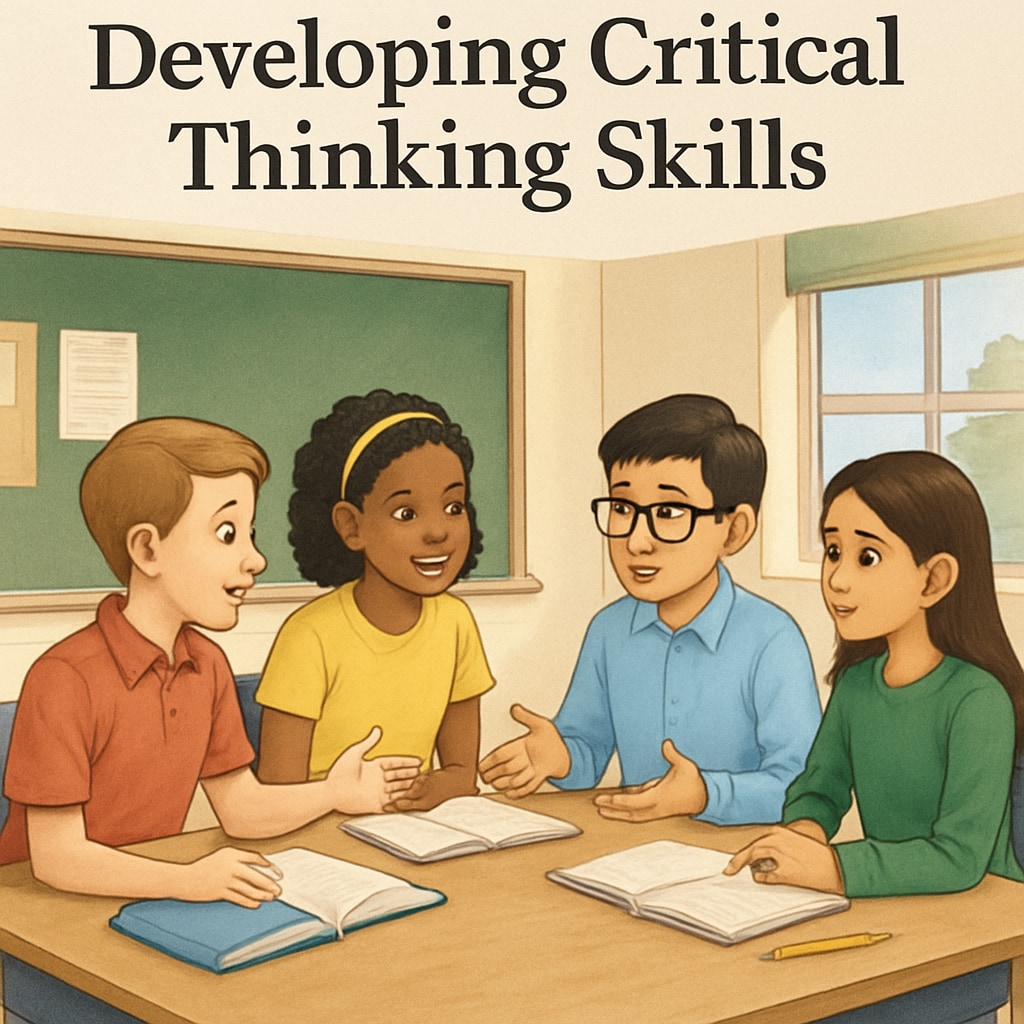Education is more than just the transfer of knowledge; it is a transformative journey that shapes character and nurtures critical thinking, self-awareness, and respect. These foundational elements of personal development are particularly significant during the K-12 education phase, where young minds are most impressionable. By fostering these qualities, education empowers students to grow into responsible, empathetic, and intellectually curious individuals, capable of contributing meaningfully to society.
The Role of Education in Developing Critical Thinking
Critical thinking is a fundamental skill that enables individuals to analyze, evaluate, and synthesize information effectively. In the modern world, where misinformation and biases are prevalent, the ability to think critically has become more essential than ever. K-12 education plays a pivotal role in teaching students how to question assumptions, assess evidence, and draw reasoned conclusions.
For example, subjects like history and science encourage students to evaluate diverse perspectives and understand the importance of evidence-based reasoning. Teachers often use open-ended questions and problem-solving activities to stimulate intellectual curiosity and analytical thinking. As a result, students learn to approach challenges with a balanced and informed mindset.

Nurturing Self-Awareness Through Education
Self-awareness—the ability to recognize and understand one’s emotions, values, and behaviors—forms the cornerstone of emotional intelligence. Education provides a structured environment where students can explore their identities, strengths, and areas for growth. Activities such as reflective journaling, group discussions, and extracurricular programs encourage introspection and personal development.
Moreover, self-awareness fosters resilience and adaptability, helping students navigate challenges with greater confidence. For instance, when students receive constructive feedback on their academic performance, they gain insights into their learning habits and areas for improvement. As they progress, this self-awareness becomes a lifelong asset, enabling them to make informed decisions and pursue their goals with clarity.

The Importance of Respect and Empathy in Education
Respect and empathy are core values that promote harmonious relationships and social cohesion. Education serves as a powerful medium for instilling these values in students. Through collaborative projects, cultural exchange programs, and inclusive classroom practices, students are exposed to diverse perspectives and learn the importance of treating others with kindness and dignity.
In addition, literature and social studies curricula often introduce students to stories and events that highlight the consequences of prejudice and the value of understanding different viewpoints. These lessons help students develop a sense of global citizenship, preparing them to thrive in an interconnected world.
For example, initiatives like anti-bullying campaigns and community service projects teach students the significance of respect and empathy in creating a positive and inclusive environment. These experiences not only enhance social skills but also contribute to the development of ethical and compassionate individuals.
The Lasting Impact of Education on Character and Mindset
Ultimately, the true essence of education lies in its ability to shape character and mindset. By cultivating critical thinking, self-awareness, and respect, education equips students with the tools they need to navigate the complexities of life. These qualities enable them to make thoughtful decisions, build meaningful relationships, and contribute positively to society.
As educators, parents, and policymakers, it is our collective responsibility to ensure that education goes beyond academic achievement. By prioritizing character development and holistic growth, we can create a generation of individuals who are not only knowledgeable but also compassionate, reflective, and open-minded.
In conclusion, education is the invisible force that molds the character and mindset of young individuals. By emphasizing critical thinking, self-awareness, and respect, we create a foundation for lifelong learning and personal growth, ensuring a brighter and more inclusive future for all.


